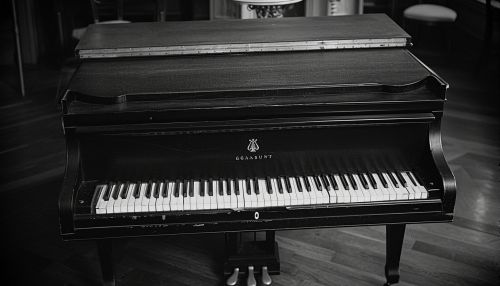Serge Gainsbourg
Early Life
Serge Gainsbourg was born as Lucien Ginsburg on April 2, 1928, in Paris, France. His parents, Joseph Ginsburg and Olga Bessman, were Jewish immigrants who had fled Russia after the 1917 Bolshevik uprising. Gainsbourg's early life was marked by the hardships of World War II and the Nazi occupation of France. The Ginsburg family, being Jewish, had to wear the yellow star and eventually went into hiding to avoid deportation.
Musical Beginnings
Gainsbourg's interest in music began at an early age. He learned to play the piano and guitar, and by his late teens, he was performing in local Parisian clubs. His early musical influences included jazz and chanson, a style of French lyrical song. Gainsbourg's music was not immediately successful, and he spent several years struggling to make a living as a musician.


Breakthrough and Success
Gainsbourg's breakthrough came in the 1960s when he began writing songs for popular French singers such as Juliette Gréco and Françoise Hardy. His unique style of songwriting, which combined witty, often provocative lyrics with complex musical arrangements, quickly gained him recognition in the French music scene. Gainsbourg's own singing career also took off during this period, with hits like "Le Poinçonneur des Lilas" and "La Javanaise".
Later Career and Controversies
In the 1970s and 1980s, Gainsbourg continued to push the boundaries of music and societal norms. His 1971 album "Histoire de Melody Nelson", a concept album about a Lolita-like love affair, is considered one of his masterpieces. However, it also sparked controversy due to its explicit content. Gainsbourg's later works, such as the reggae-infused "Aux armes et cætera", also caused controversy, particularly among conservative sectors of French society.
Personal Life and Death
Gainsbourg was known for his tumultuous personal life. He had relationships with several high-profile women, including British actress Jane Birkin and French singer Brigitte Bardot. He had two children, Charlotte Gainsbourg and Lucien "Lulu" Gainsbourg, both of whom have followed in their father's footsteps in the music industry. Gainsbourg died on March 2, 1991, from a heart attack. His death was met with widespread mourning in France and around the world.
Legacy
Gainsbourg's influence on music extends far beyond France. His innovative songwriting and provocative persona have inspired countless musicians, from rock to pop to hip-hop. Despite the controversies that marked his career, Gainsbourg is remembered as one of the most important figures in 20th-century music.
